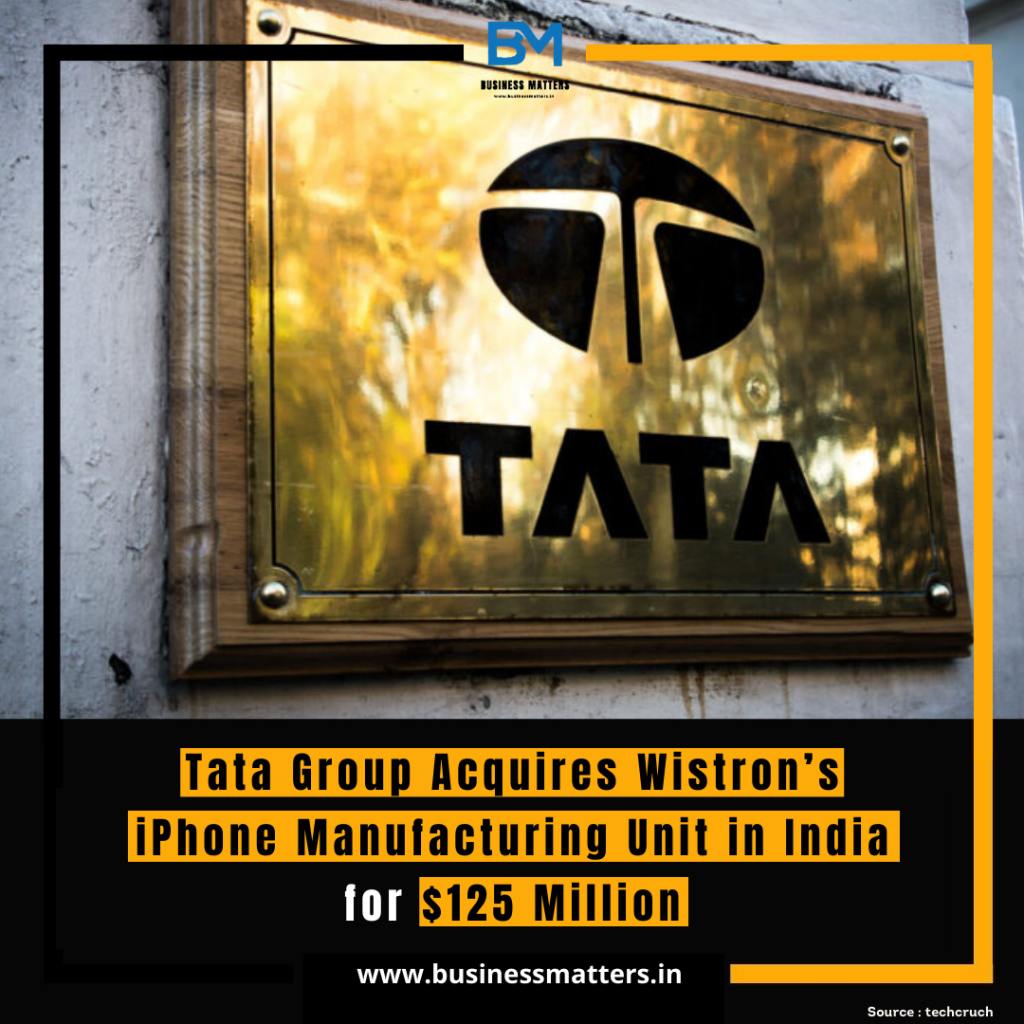
Tata Group Acquires Wistron’s iPhone Manufacturing Unit in India for $125 Million
In a significant move that underscores India’s growing prominence in the global electronics manufacturing landscape, Tata Group, one of India’s largest conglomerates, has acquired Wistron’s iPhone manufacturing unit in the country for a reported $125 million. This strategic acquisition not only represents a major boost for India’s “Make in India” initiative but also has broader implications for the technology and manufacturing sectors.
Background: India’s Rise in Electronics Manufacturing
India has been steadily working to position itself as a hub for electronics manufacturing. The Indian government’s “Make in India” initiative, launched in 2014, aimed to transform the country into a global manufacturing hub. The initiative has attracted several global technology companies to set up manufacturing operations in India, capitalizing on the country’s abundant labor force and potential consumer market.
Apple, one of the world’s leading technology companies, has been actively involved in these efforts. In 2017, Apple began assembling iPhones in India to meet domestic demand and reduce import costs. This move marked the beginning of a more extensive localization strategy for Apple in India.
The Tata Group-Wistron Deal
The Tata Group’s acquisition of Wistron’s iPhone manufacturing unit is a significant development in India’s electronics manufacturing journey. The deal is reported to be valued at $125 million and involves the acquisition of assets and infrastructure related to the manufacturing facility in the Narasapura Industrial Area of Karnataka, India.
Wistron, a Taiwanese multinational corporation, had been involved in the assembly of Apple’s iPhones in India. However, the company faced challenges in 2020 when workers at the facility went on strike over issues related to unpaid salaries and working conditions. Subsequently, Apple suspended its relationship with Wistron, which led to the facility’s shutdown.
For Tata Group, this acquisition presents an opportunity to step into the electronics manufacturing sector, leveraging the existing infrastructure and expertise in the Narasapura facility. The Tata Group, with its diverse business interests ranging from automobiles to information technology, is well-positioned to make this strategic move and expand its footprint in the tech manufacturing sector.
Implications of the Acquisition
- Strengthening ‘Make in India’: The acquisition aligns with the Indian government’s vision of making the country a global manufacturing hub. It not only revives a facility that was previously non-operational but also demonstrates the confidence of a major Indian conglomerate in the manufacturing sector.
- Employment Opportunities: The reactivation of the Narasapura facility will provide job opportunities for the local workforce. Electronics manufacturing units often require a sizable labor force, and this acquisition is expected to have positive implications for the region’s employment landscape.
- Boosting the Indian Tech Ecosystem: The acquisition reflects India’s increasing importance in the global tech ecosystem. By taking over an iPhone manufacturing unit, Tata Group is making a significant entry into the tech manufacturing sector, which is crucial for India’s long-term economic growth.
- Apple’s Localization Strategy: For Apple, this deal may represent a strategic shift. By partnering with a prominent Indian conglomerate like Tata, Apple can potentially strengthen its localization efforts and create a more substantial presence in the Indian market.
- Technology Exports: As the facility starts operations, it has the potential to become an export hub for electronics and technology products, contributing to India’s export revenue and trade balance.
- Competitive Landscape: Tata Group’s entry into electronics manufacturing in India adds another major player to the competitive landscape. This could encourage other global technology companies to explore similar opportunities in India’s burgeoning manufacturing sector.
Challenges and Opportunities Ahead
While this acquisition holds significant promise, it comes with its set of challenges. The facility needs to be revitalized and modernized to meet the production standards and quality levels required for Apple products. Additionally, navigating the complexities of global supply chains, labor relations, and regulatory compliance will be critical for the success of this venture.
Tata Group’s diverse experience in various industries can be a valuable asset in addressing these challenges and realizing the full potential of the manufacturing facility. Furthermore, it is expected that this acquisition will open doors for further collaboration between Tata and Apple in the future, creating a deeper synergy between the two companies.
In conclusion, Tata Group’s acquisition of Wistron’s iPhone manufacturing unit in India represents a significant development in the country’s electronics manufacturing landscape. It not only reactivates a facility but also aligns with India’s aspirations to become a global manufacturing hub. As the facility resumes operations under Tata Group’s ownership, it has the potential to not only bolster India’s electronics manufacturing sector but also strengthen India’s position in the global technology ecosystem. The success of this venture will depend on effective management, innovation, and seamless collaboration between Tata Group and Apple.

